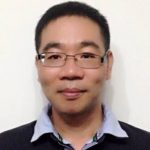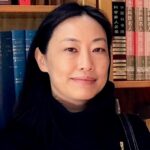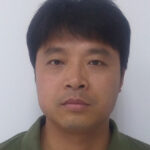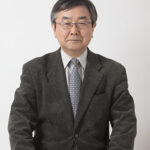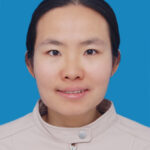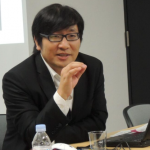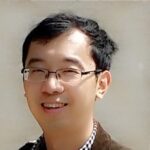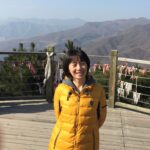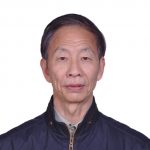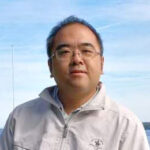Return to the 2019 Conference on Production, Preservation and Perusal of Buddhist Epigraphy page.
|
1. Stephanie BALKWILL 白思芳 (The University of Winnipeg 加拿大溫尼伯大學)
|
Stephanie Balkwill is an Assistant Professor of Religion and Culture and East Asian Languages and Cultures at the University of Winnipeg in Winnipeg, Canada. Her work explores the connection between women, politics, and Buddhism in China’s Northern and Southern Dynasties and argues that women gained increased social prestige and political influence through their affiliation with Buddhist institutions and ideas during China’s early medieval period. She is currently working on two major projects: 1) a critical history of the Buddhist activities of Northern Wei Empress Dowager Ling (d. 529); 2) a literary study of women’s involvement in the production of texts related to the Mahāyāna ideal of female-to-male sex change as it was known, in China and in Chinese, between the 4th and 6th centuries. | |
|
2. T.H. BARRETT 巴瑞德 (SOAS, University of London 英國倫敦大學亞非學院
|
T. H. Barrett studied Chinese at Cambridge and Buddhist Studies at Yale, and in Japan, before returning to the United Kingdom to teach at Cambridge for over a decade before switching to London. A portion of his doctoral work was published in 1992 as Li Ao: Buddhist, Taoist, or Neo-Confucian? Since 2014 he has been Professor Emeritus of East Asian History at the School of Oriental and African Studies, University of London, where much of his teaching and research was concerned with aspects of the religious history of China, primarily during the first millennium CE, such as the relationship between Buddhism and the development of Chinese printing; he continues to work in this area. His other interest include the history of cats in China, the transmission of the Liezi, the development of an understanding of China in Britain, eighteenth century Japanese critics of Buddhism, images of Mongol rule in China, the development of the academic study of Daoism, the ‘Zen and History’ controversy and other aspects of the history of Chan/Zen, and other topics. He has reviewed for the London Review of Books, The Independent, and other periodicals, and participated in the radio series ‘In Our Time’. | |
|
3. CHEN Jinhua 陳金華 (The University of British Columbia 加拿大英屬哥倫比亞大學)
|
Jinhua Chen is Professor of East Asian intellectual history (particularly religions) at the University of British Columbia, where he also served as the Canada Research Chair in East Asian Buddhism (2001–2011). He has additionally taught short-term positions at the University of Virginia, the University of Tokyo, and Stanford University.As recipient of research grants and fellowships including Social Sciences and Humanities Research Council of Canada (SSHRC), Canada Research Chairs (CRC) Program, Killam Foundation, Peter Wall Institute for the Advanced Studies, Society for the Promotion of Buddhism (Bukkyō Dendō Kyōkai, BDK), Japan Society for the Promotion of Social Sciences (JSPS), Alexander von Humboldt Foundation and the Max Plank Institute, the Academy of Korean Studies, and most recently, the National Humanities Center, his research projects span from East Asian state-church relationships, to monastic (hagio/)biographical literature, Buddhist sacred sites, relic veneration, Buddhism and technological innovation in medieval China, and Buddhist translations. In addition to publishing five monographs, he has also co-edited five books. He has authored over fifty book chapters and journal articles. See more information on his current and forthcoming publications here. | |
4. CHEN Zhiyuan 陳志遠 (Chinese Academy of Social Sciences 中國社會科學院)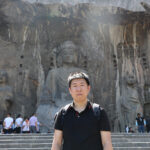 |
Chen Zhiyuan is assistant researcher in the Institute of Chinese history at Chinese Academy of Social Sciences. He received his Ph.D. in medieval Chinese history from Peking University (2013) and held a short-term research fellowship at Kyoto University, in Japan (2012) and then at the Dharma Drum Buddhist College, in Taiwan (2014). He works primarily in the area of medieval Chinese Buddhism, particularly the interaction between Buddhism and the indigenous traditions. He is currently writing two books, with one focusing on the emergence and doctrinal development of the mofa/mappo theory (Buddhist eschatology), and the other on the idea of filial piety in the Buddhist tradition. | |
|
5. Jessey J.C. CHOO 朱雋琪 (Rutgers University 美國羅格斯大學) |
Jessey J.C. Choo, associate professor of Chinese History and Religion at Rutgers University-New Brunswick, is a cultural historian and specialist in the entombed epigraphy of medieval China. Her recent work has focused on two interconnected projects dealing with the expression and realization of personhood in the Chinese middle period, namely, rituals of death and remembrance, and the conceptualization of the female body in popular soteriology. She is the author of Inscribing Death: Burials, Texts, and Remembrance in Tang China, 618–907 CE (forthcoming) and co-editor of two anthologies of medieval Chinese texts: Early Medieval China (2014) and Tales from Tang Dynasty China (2017). Since 2015, she has co-organized with Alexei Ditter an ongoing workshop series on medieval Chinese entombed inscriptions. She and Alexei Ditter are also co-writing a monograph on the construction, circulation, and consumption of memory in medieval China through a detailed study of entombed epitaphs. | |
|
6. Alexei DITTER 迪磊 (Reed College 美國里德學院) |
Alexei Kamran Ditter is an associate professor of Chinese at Reed College in Portland, OR, USA. His research explores interactions between social and textual practices in late medieval China, focusing in particular on questions of place, genre, and memory. Publications include articles on 20th c. literary histories of the Tang dynasty (618–907), civil examinations and cover letters in late 8th c. China, conceptions of urban space in Duan Chengshi’s 9th c. Records of Monasteries and Stupas, and the commercialization of funerary writing in the mid- to late-Tang, as well as a volume of annotated translations from a 10th c. anthology, Tales from Tang China: Selections from the Taiping guangji (co-edited with Jessey J.C. Choo and Sarah M. Allen, 2017). As a current Fellow at the Morphomata Center for Advanced Studies in the Humanities at the University of Cologne, he is working with Jessey J.C. Choo on a co-authored monograph project that explores the construction, circulation, and consumption of memory in China’s 7th through 10th centuries. He is also completing a monograph studying genre and memory in medieval Chinese literature and co-editing, with Jessey J.C. Choo, an anthology of late medieval entombed epitaph inscriptions. | |
|
7. FENG Guodong 馮國棟 (The University of Zhejiang 浙江大學) |
Dr. Feng Guodong is currently a professor in School of Humanities, vice director of Center for Buddhist Studies, and vice head of School of Humanities at the ZheJiang University. He received his Ph.D. from FuDan University (2004). His research interests include the Buddhism philology, Buddhism geography and Buddhism literature. His project is the study on Buddhist inscriptions in Chinese now. He is the author of Buddhist Documents and Buddhist literature 佛教文獻與佛教文學 (2010), and Research on jingde Chuandenglu 《景德傳燈錄》研究 (2014). | |
|
8. JIAO Jianhui 焦建輝 (Academy of Longmen Grottoes 龍門石窟研究院) |
焦建輝,龍門石窟研究院副研究館員,從事中國石窟寺考古研究。 2013年7月以來,受聘為河南省文物鑑定委員會委員;2016年4月至2019年3月受聘為日本法政大學大學院中國古代物質文化研究所特任研究員;2018年11月至2019年2月受聘為日本京都大學人文科學研究所客員準教授,開展“龍門石窟の日中共同研究”項目。先後參加“龍門石窟擂鼓台區考古報告”、 “中國石窟寺考古中3D數字技術的理論、方法和應用研究” 等國家社科基金(重大)項目,在《中原文物》等期刊發表《龍門火燒洞與北魏孝文帝》、《龍門古陽洞楊大眼龕雕鑿年代考察》、《龍門東山擂鼓台佛足跡圖像碑及相關問題》等論文十餘篇,參與了《龍門石窟考古報告——東山擂鼓台區》、《中原文化大典·文物典——龍門石窟》等書籍的編撰工作。 | |
| 9. JI Yun 紀贇 (Buddhist College of Singapore 新加坡佛學院)
|
Ji Yun 紀贇,文學博士,新加坡佛學院(Buddhist College of Singapore)長聘副教授,兼任教務主任(Deputy Dean of Academic)、圖書館館長 (Chief Librarian)。除教學外,主要從事佛教文獻、佛教史等相關研究。曾出版或將出版專著《慧皎高僧傳研究》(2009,上海古籍)、《佛教經典觀》(2011,宗教文化);譯著《那體慧佛教文獻學研究論文集》(獨譯,2017,廣西師大)、《大乘佛教》(獨譯,將出,廣西師大)、《佛教文獻學十講》(合譯, 2019,中西書局)、《左冠明佛教文獻學研究論文集》(獨譯,將出,中西書局);《一山而五頂:多學科、跨方域、超文化視野中的五台信仰研究》(2017,新文豐,合編);《五台山信仰多文化、跨宗教的性格以及國際性影響力:第二次五台山研討會論文集》(2018,新文豐,合編);英譯漢學術論文二十餘篇;學刊、會議論文與書評二十餘篇. | |
| 10. KEGASAWA Yasunori 氣賀澤保規 (Meiji University 日本明治大學)
|
氣賀澤保規,日本長野縣人。現任明治大學客員研究員(東亞石刻文物研究所所長),(公財)東洋文庫(the Toyo Bunko Institute)研究員,東亞歷史文化研究所(氣賀澤研究室)代表。畢業於京都大學文學部、同大學院博士課程。佛教大學文學部助教授、富山大學教養部與人文學部教授、明治大學文學部教授。 1996年以《府兵制的研究》獲得文學博士(京都大學)。 2014年3月定年退休明治大學。專攻是隋唐時代的政治社會文化史。現在的研究項目是「唐代房山石經」「隋唐府兵制」「隋唐洛陽學」「唐代墓誌石刻史料的整理」「隋唐佛教社會」等研究。主要著書:《則天武后》(白帝社,1995年/講談社學術文庫,2016年)、《中國佛教石經的研究》(主編,京都大學學術出版會,1996年)、《府兵制的研究―府兵兵士及其社會》(同朋舎・京都大學「東洋史研究叢刊」,1999年)、《中國的歴史6 絢爛的世界帝國隋唐時代》(講談社,2005年/中文版,廣西師範大學出版社,2014年)、《中國中世佛教石刻的研究》(主編,勉誠出版,2013年)、《新編唐代墓誌所在総合目錄》(明治大學東亞石刻文物研究所、汲古書院,2017年)等。
KEGASAWA Yasunori was born in Nagano Prefecture, Japan. He currently serves as director for The Institute of East Asian Epigraphy and Stone Artifacts at Meiji University; researcher at the Tōyō Bunko Institute; and senior director at The Institute of East Asian History and Culture. He previously served as assistant professor at Bukkyō University; professor at College of Liberal Arts and Faculty of Humanities, Tōyama University; and professor at Faculty of Letters, Meiji University. He Graduated from Faculty of Literature Kyoto University and in 1996 was awarded Ph.D. for his dissertation “A Study of the Fubing Military System: Fu-bing Soldiers and their Society”. He retired from Meiji University in 2014. His specialized field of study is socio-political history of the Sui-Tang Period. His current research interests include: Fangshan stone sutras from the Tang dynasty, the Fu-bing system during the Sui-Tang period, studies of Luoyang during the Sui-Tang period, collating sources on stone tomb inscriptions from the Tang dynasty, and Buddhist society of the Sui-Tang period. His major publications include: The Emperor Wu (Kōdansha Gakujutsu Bunko 2016), A Study of the Buddhist Stone Inscriptions and Stone Images in Medieval China, editor (Kyoto University UP., 1996), A Study of the Fubing Military System (Dōhōsha [Tōyōshi Kenkyū Sōsho] 1999), A Dazzling World Empire, the Sui-Tang Period (Chinese History 6) (Kōdansha 2005, Chinese-language edition, Guangxi Normal University, 2014), A Study of the Buddhist Stone Inscriptions and Stone Images in Medieval China, editor (Bensei Shuppan, 2013), and Catalogue of Bibliographic Sources of Stone Tomb Inscriptions from the Tang Period [Newly Revised Edition] (Kyūko Shoin, 2017). |
|
|
11. George KEYWORTH 紀強 (University of Saskatchewan 加拿大薩斯喀徹溫大學)
|
George Keyworth is Associate Professor in the Department of History at the University of Saskatchewan, in Canada. He received his Ph.D. in Chinese Buddhist Studies from the University of California, Los Angeles (UCLA). Dr. Keyworth has received grants from the Social Sciences and Humanities Research Council (SSHRC) of Canada to support research about and the publication of peer-reviewed articles on Northern Song dynasty (960–1127) Chinese Chan Buddhism and the figure of Juefan Huihong 覺範惠洪 (1071–1128); Japanese pilgrims to Song China (e.g., Jōjin 成尋 [1011–1081]); apocryphal Chinese Buddhist scriptures and the particular case of the Shoulengyan jing 首楞厳經 (*Śūraṃgama-sūtra) using sources from Dunhuang and Japan; esoteric Buddhism in Tang (618–907) and Song China; Zen Buddhism in Edo Japan and the figure of Kakumon Kantetsu 覚門貫徹 (d. 1730); and old Japanese manuscript Buddhist canons, especially from Nanatsudera 七寺 and the Matsuo shrine canon kept at Myōrenji 妙蓮寺. Dr. Keyworth is currently working on two books, tentatively titled: Zen and the Literary Arts, and Copying for the Kami: A Study and Catalog of the Matsuo Shrine Buddhist Canon. | |
|
12. KURAMOTO Shotoku 倉本尚德 (Kyoto University 日本京都大學)
|
Professor Kuramoto is an Associate Professor in Institute for Research in Humanities, Kyoto University. He received his Ph.D. from the Graduate School for Humanities and Sociology and Faculty of Letters, University of Tokyo and serves as a Post-doctoral Research Fellow at Research Center for Buddhist Cultures in Asia, Ryukoku University. He is also RA at the Institute für Kunstgeschichet Ostasiens at Universität Heidelberg, and Assistant Research Fellow in Institute of History and Philology at Academia Sinica. Major research areas are medieval Chinese Buddhist history and the history of the interrelationship of the Confucianism, Buddhism, and Taoism. Since 2004, he has been involved in several field research in northern China to study the stelai and the inscriptions of the open cliffs and caves. Additionally, he studies ancient manuscripts of Dunhuang and in Japan. |
|
|
13. Channa LI 李嬋娜 (Institute for the Cultural and Intellectual History of Asia 奧地利科學院亞洲文化與思想史研究所)
|
Channa Li is currently a Post-doc Research Associate in IKGA (Institute for the Cultural and Intellectual History of Asia), Austria Academy of Science. She finishes her Ph.D. study at Leiden University in 2019, under the supervision of Prof. J.A. Silk. In 2017–2018, she was awarded the Dissertation Fellowship from the Robert H. N. Ho Family Foundation, the American Council of Learned Societies (ACLS). Her fields of interest range widely from the Buddhist cultures and materials along the Silk Road (esp. Dunhuang, Kizil), to the significance of Buddhist narratives in helping us visualize the ideological history of Buddhism in ancient India, China, and Tibet. She partly focuses on Buddhist Mahāyāna translations made by medieval Chinese and Tibetan monks, especially Tibetan sūtras translated from Chinese. Her Ph.D. thesis highlights the diversity of early Buddhist views on the central authority of Buddhism. Through stories surrounding the disobedient disciple Devadatta and the foremost disciple Śāriputra, she investigates different aspects of how the Buddha’s authority was understood, consolidated, challenged, and inherited in narratives. | |
|
14. LIU Yongsi 劉泳斯 (Minzu University of China 中央民族大學)
|
Liu Yongsi is Assistant Professor of Religious Studies, Minzu University of China. She received her Ph.D. in Religious Studies from The Chinese University of Hong Kong in 2010. She specializes in the history of modern Chinese religions and is particularly interested in issues of local religious history and practice. She is the author of Modern Transformation of Local Religion in Northeast Guangxi. Her current research includes a long term project on the history of the confluence of Buddhism and Popular Religion in China. | |
|
15. SUN Mingli 孫明利 (The University of British Columbia 加拿大英屬哥倫比亞大學)
|
孫明利,加拿大英屬哥倫比亞大學博士生,從事佛教物質文化研究。已在《故宮博物院院刊》、《大足石刻全集》、《石窟藝術研究》等雜誌發表學術論文數篇(包括《大足石刻觀無量壽經變分析》、《四川唐五代觀無量壽經變光明轉與寶船因素分析》、《四川唐五代摩崖浮雕觀無量壽經變分析》等)。 | |
|
16. SUN Yinggang 孫英剛 (Zhejiang University 浙江大學)
|
Having studied at Peking University, Prof. Yinggang Sun received his doctoral degree from Princeton University. He is currently Professor and Director of East Asian Religions at the University of Zhejiang, he also serves as a Deputy Director of Wutaishan International Institute for the Study of Buddhism and East Asian Culture, an Executive member of China’s Society for Early Medieval History, and the Editor-in-chief of book Series “Studies of International Buddhism and Chinese Religions.” His research spans over medieval Chinese history, Buddhist history and intellectual history. In addition to more than 70 published journal papers, he is the author of The Chenwei Prophecy Texts and Medieval Politics, A History of the Sui-Tang and Five Dynasties (both in Chinese), and so on. He also serves on the editorial boards for several academic journals. 孫英剛,先後就讀北京大學和普林斯頓大學,獲普林斯頓大學哲學博士學位。現任浙江大學東亞宗教文化研究中心主任、五台山國際研究院副院長、中國魏晉南北朝史學會理事、 “國際佛教與中國宗教研究叢書”主編。主要從事中古史、佛教史及史學理論研究,代表作包括《神文時代:讖緯、術數與中古政治研究》、《隋唐五代史》等,並發表相關論文70多篇。擔任多種國際學術刊物編委。 |
|
|
17. TONG Ling 童嶺 (University of Nanjing南京大學)
|
童嶺(Tong Ling),文學博士,南京大學文學院教授,中國魏晉南北朝史學會理事。研究方向為:六朝隋唐時代的學術、思想與文學(Medieval Chinese Academic, Thought and literature);古代東亞史與域外漢籍研究(Ancient East Asian History and Oversea Chinese Classics)等。他的主要著作包括:
|
|
18. WANG Jun 王珺 (Peking University 北京大學)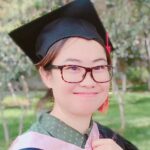 |
1982年12月生於天津,本科畢業於吉林大學,碩士、博士研究生畢業於南開大學,師從陳洪教授。現於北京大學外國語學院南亞系做博士後工作,合作導師為湛如教授。主要研究方向為中國古代文學史,宗教文學,比較文學。主要發表作品有《來華景教徒與怛羅斯之戰》《試論景教初傳時期的傳教策略及其影響——基於文化傳播的視角》《宗教視域下的初盛唐文化政策芻議》等多篇學術論文。 | |
19. Claudia WENZEL 温狄婭 (Heidelberg Academy of Sciences and Humanities 德國海德堡科學與人文科學研究院)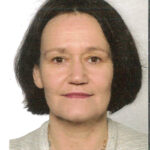 |
Claudia Wenzel is a senior researcher in the research unit “Buddhist Stone Inscriptions in China” hosted by the Heidelberg Academy of Sciences and Humanities. She is the editor of two of a total of seven volumes so far published in the series Buddhist Stone Sutras in China: Buddhist Stone Sutras in Shangdong Province Volume 2 (together with Wang Yongbo, editor: Lothar Ledderose), and Buddhist Stone Sutras in Sichuan Province Volume 3 (together with Sun Hua). Apart from her numerous contributions to all volumes in this series, she has also published on related art-historical topics, such as The Image of the Buddha: Buddha Icons and Aniconic Tradition in India and China (Transcultural Studies, 2011). Her current research focus is on the interrelations between stone carvings and Buddhist topography, with publications such as Monumental Stone Sutra Carvings in China and Indian Pilgrim Sites (Journal of Chinese Buddhist Studies Volume 29: 2016). | |
|
20. ZHANG Chengyu 張成渝 (Peking University 北京大學) |
張成渝,1976年生,理學博士,北京大學考古文博學院副教授。主講《世界遺產概論》(北京大學通選課)、《文化遺產保護的理論與實踐》等課程。 比利時艾蘭姆(Ename)文化遺產解說與展示中心訪問學者(2012年11月–2013年11月),比利時根特大學(Ghent University)博士後(2012年11月–2013年11月)。 2005年9–12月,受意大利外交部資助,赴羅馬第二大學(Università degli Studi di Roma Tor Vergata)進行學術交流。 主要研究方向為遺產保護與利用、遺產解說與展示。公開發表學術論文30餘篇,參編學術著作5部。主持並主要完成國家自然科學基金1項(批准號:40901074),參與國家自然科學基金1項(批准號:41171431)、國家社會科學基金2項(批准號:17ZDA207,03CSH017)。 |
|
|
21. ZHANG Naizhu 張乃翥 (Academy of Longmen Grottoes 龍門石窟研究院) |
張乃翥,1981年洛陽大學中文系畢業,於龍門石窟研究院從事文化遺產的學術研究至今,副研究員。中國考古學會會員,中國魏晉南北朝史學會會員,中國唐史學會會員,中國海外交通史學會會員,中國敦煌吐魯番學會理事。絲綢之路沿線的文化交流和西域文明的東方傳播,是其幾十年來學術研究的重點方向。 30多年來在海內外發表學術論文百餘篇,出版學術著作13部。曾應邀赴新加坡、韓國、意大利、奧地利、俄羅斯進行國際學術交流和講學。並訪問印度、斯里蘭卡及歐洲諸國的眾多文化遺產和博物館。 目前正在從事的學術著述,是《隋唐洛陽佛教寺院史料集成》,業已完成220萬字的史料輯錄。 |
|
|
22. ZHANG Xuesong 張雪松 (Renmin University of China 中國人民大學)
|
張雪松,男,1980年生,北京人。2008年在香港中文大學文化及宗教研究系獲得博士學位。現為中國人民大學哲學院宗教學教研室副教授,碩士生導師,教育部人文社會科學重點研究基地佛教與宗教學理論研究所專職研究員,北京大學佛教研究中心兼職研究員;曾任中國人民大學哲學院宗教學教研室主任、宗教高等研究院院長助理等職。主要研究方向為佛教思想史、中國宗教史,先後在中國台灣和大陸地區出版學術專著四部:《法雨靈岩:中國佛教現代化歷史進程中的印光法師研究》、《唐前中國佛教史論稿》、《漢魏兩晉南北朝佛教史》(季羨林、湯一介主編“中華佛教史”第一卷)、《佛教“法緣宗族”研究:中國宗教組織模式探析》,譯著《天藍色的彼岸》等3部,在海內外發表論文多篇。曾在香港佛教雜志《溫暖人間》開設個人專欄;以“雨山”為筆名在《中國民族報·宗教周刊》開設專欄多年。 | |



